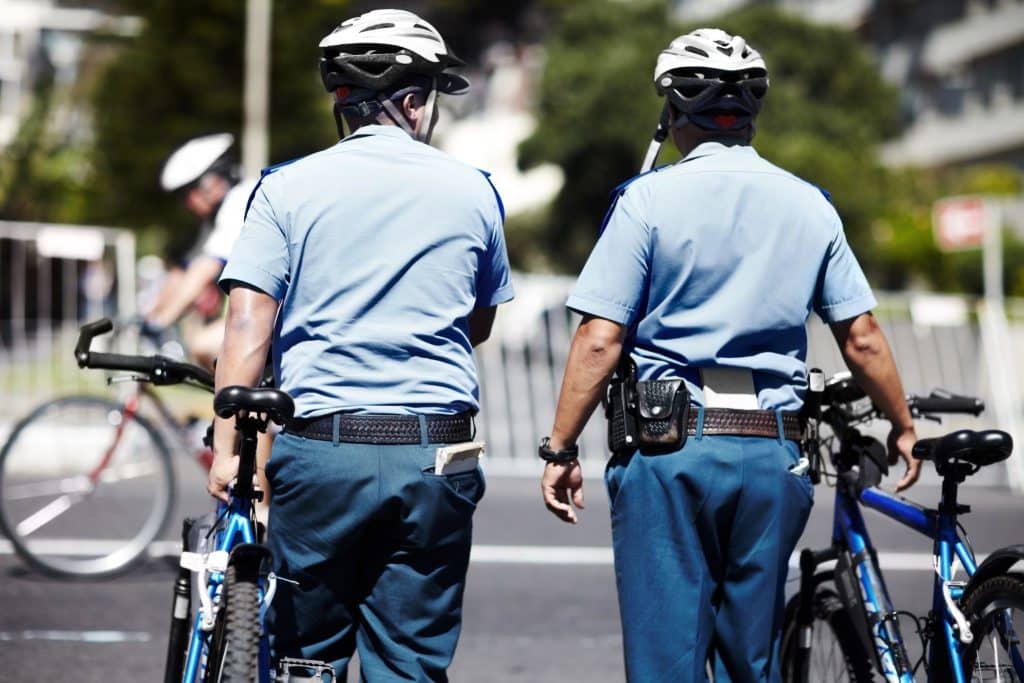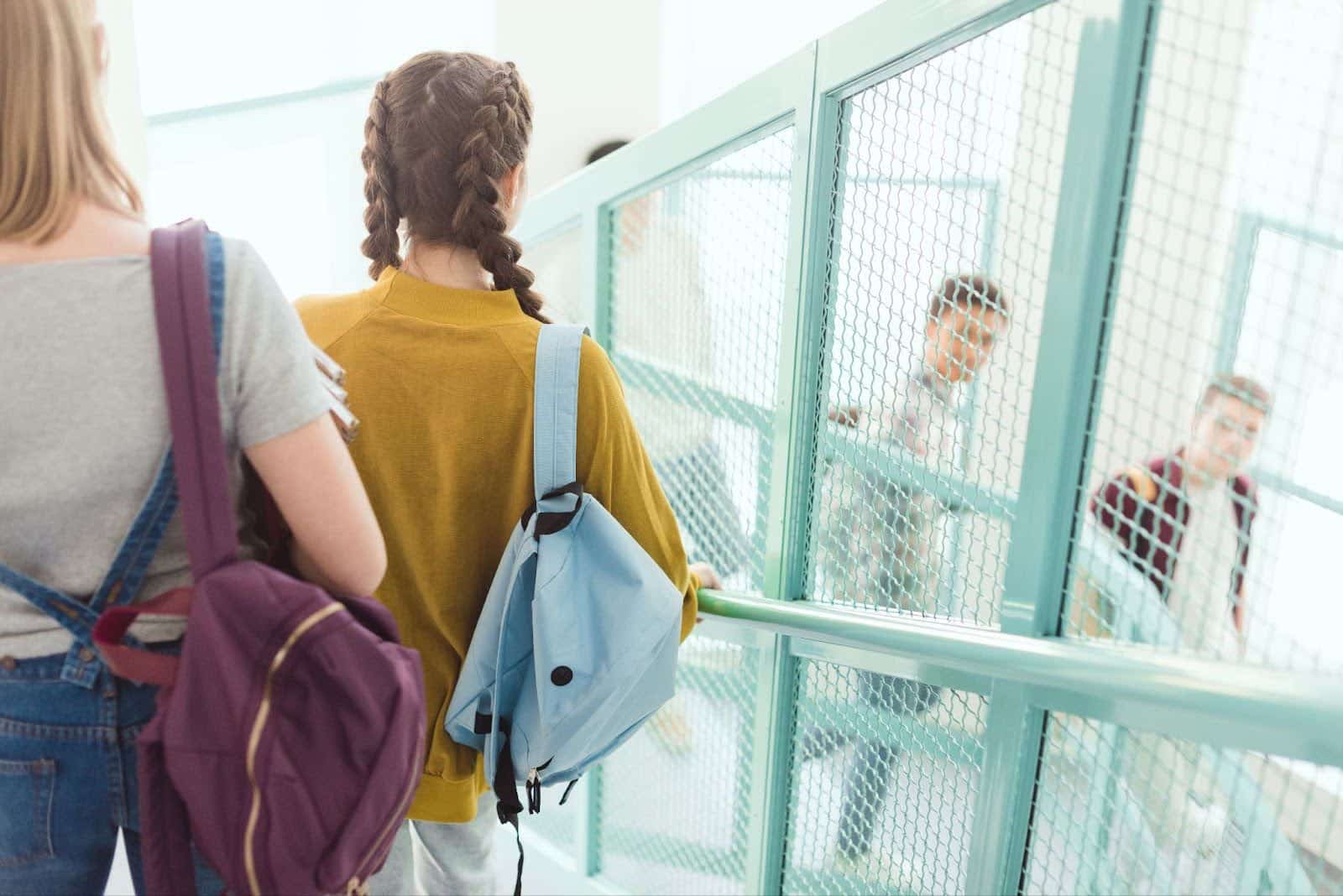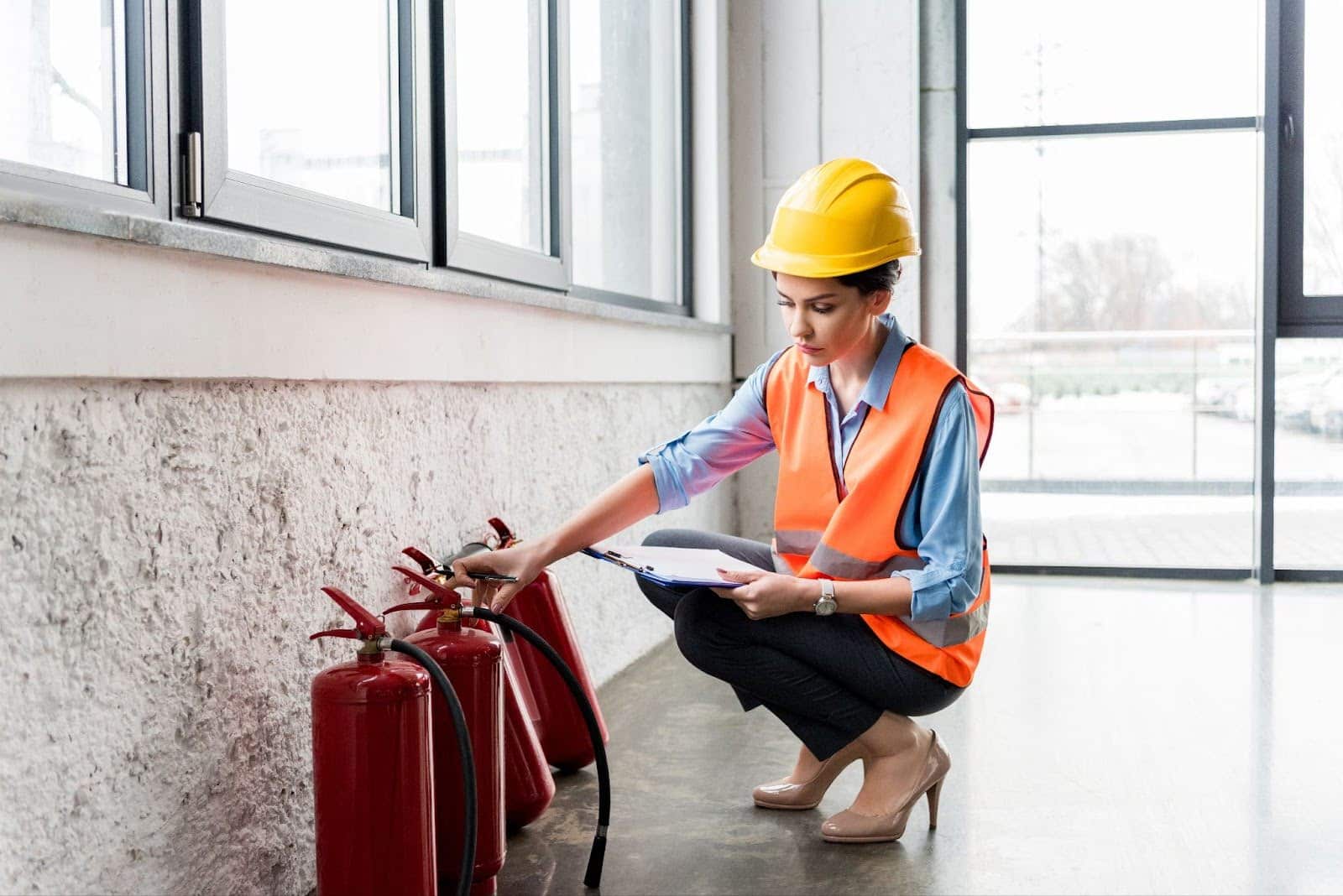
The Ultimate Event Security Checklist
As an event planner, you have a lot on your plate.
So many things fall on your shoulders: from reserving the perfect venue to hiring the vendors for catering and entertainment. On top of it all, you still need to decorate the space and plan for where and how your guests will park and check in.
But there’s another crucial element you can’t afford to overlook: security.
Security must be a top priority for event management. Of course, planning for it may be more complicated than you think.
No matter what type of gathering you’re arranging, here’s our complete event security checklist to follow when organizing your next big event.
Contents:
Best Security Measures for Event Planning
Event Security Checklist: 11 Steps to Make Your Next Event Safe
Best Security Measures for Event Planning
Think of all the guards you’ve seen at stadiums, concerts, rallies, and trade shows.
As an event attendee, it often seems like all they do is watch the entrance and, on occasion, break up crowds or remove unruly guests. They have a visible presence on the day of the event, but it’s what they do beforehand that can determine the outcome of the entire experience.
For professional security teams, their work starts long before event day. Experienced security companies, including nightclub security professionals, put detailed security measures in place well in advance.
Add that to all the things they do on the day of the event, and it’s easy to see why so many event planners choose to hire a professional company to safeguard their event rather than attempting to do it themselves.
Learn about other specialized security services:
Manufacturing plant security | celebrity security guards | yacht security | movie set security | fire watch security | hospital security | bank security | movie theatre security
To find top security companies who can manage the safety of your event, explore our full California security guard database.
Event Security Checklist: 11 Steps to Make Your Next Event Safe
Whether you think you can handle security on your own or have already decided to hire guards, it’s important to understand their duties and responsibilities.
Let’s break down what you can expect from a professional security company — as well as the many things you’ll have to do on your own if you choose not to hire one.
Before the Event
Some of the most important steps in making a gathering safe involve advance planning and organization.
Here are what event organizers can expect their security team to do in the weeks and days leading up to the event.
1. Inspect The Venue
Security companies take the time to learn the venue inside and out.
Before they can put any safety measures in place, they assess every area of the space. They take note of all the most crucial features. This includes points of egress for entries and exits, as well the location of emergency exits.
They also inspect any security cameras that exist, as well as the control room where they can monitor the cameras in real time.
2. Conduct a Risk Assessment Audit
Security isn’t only about reacting in an emergency. It’s also about risk management, otherwise known as preventing an emergency from happening.
Security teams conduct a pre-event risk assessment audit to determine where and how potential safety issues could arise.
Here are the event details they consider during the audit.
- Secondary Entry Points for Staff: These could become weak spots where unwelcome guests could enter. To avoid that situation, consider requiring all staff members to show ID to enter through employee doors.
- Emergency Exit Signage: All emergency exits need lights and signage so that they’re easy to locate in the dark.
- Emergency Response Timing: It’s important to know the distance between the venue and the nearest police and fire stations. This can help you determine how long it might take law enforcement and other emergency services to arrive. Fire watch security teams can also offer guidance.
- Nearby Businesses: Some nearby businesses, such as bars or clubs, could pose a potential threat or contribute to a rowdy, dangerous, alcohol-fueled crowd. The surrounding area will have a big impact on the types of safety measures put in place.
- Weather Conditions: For an outdoor event, inclement weather conditions could pose a threat, particularly if there are temporary structures such as tents. It’s crucial to take measures that will keep everyone safe in every part of the venue.
3. Create a Situational Awareness Platform
Situational awareness is a must for all security personnel at all times. To make sure that everyone on the team understands their surroundings, security companies create detailed, digital maps of the venue and outside areas to share with the entire team.
4. Put Crowd Control Measures in Place
Crowd control measures are an important part of every safety plan. These measures help keep things orderly so that attendees can enter, exit, and enjoy the event in the safest way possible. Even restaurants benefit from security guard services and crowd control measures.
Security companies also organize ticket and registration lines, set up barriers for large crowds that might need some extra corralling, and determine the safest methods for exit or re-entry (if allowed).
You Might Like: The Beginner’s Guide to Hiring a Security Guard to Keep You Safe
4. Hire the Right Amount of Guards
It’s essential to have an adequate number of guards. There are two key things to help you determine how many guards to hire:
- Crowd size
- Layout of the event venue
The general rule of thumb is to hire one guard for every 25-50 people. You might want to add more if you plan to serve alcohol, if the venue is large or has multiple spaces, or if you expect people to spread out throughout the site.
No matter how many guards you need, be sure to hire enough to protect the venue even if someone calls out sick or doesn’t show up. If VIPs will be in attendance, consider hiring additional guards who can keep their focus on VIP safety.
5. Review Safety Measures and Emergency Procedures
Every venue has basic event safety measures and emergency procedures in place, so review them ahead of time. Every guard should be on the same page and know how to handle an emergency or threat if one occurs.
Security teams review existing evacuation procedures. They also determine the location of all emergency supplies, including:
- Fire extinguishers
- First aid kits
- AED machines
If the existing evacuation procedures are inadequate, they will put additional evacuation plans in place.
6. Communicate With Local Officials
Depending on the size and nature of your planned event, local police officers may also be on site.
Security companies communicate with them ahead of time to coordinate a security plan to keep all law enforcement officers, on-site guards, and attendees safe.
If local officials will not be on site, teams create a plan of action that includes who will call for emergency services.
During the Event
The physical presence of a security staff alone is often enough to keep attendees in line. Guards present a calm, measured presence on the big day but also juggle many important tasks that attendees don’t even realize they’re doing.
1. Ensure Safe Entry for Event Attendees
Guards ensure that everyone entering (including event staff) does so in a safe manner, without possessing any prohibited items. This includes checking bags and scanning for weapons with either metal detectors or handheld wands.
Everyone entering the venue must enter in a controlled, organized manner, and security teams make that happen.
In addition to attendees and staff, guards also control venue access to vendors by providing only authorized vendors with the credentials to enter the property. That includes catering and food safety staff, equipment trucks unloading supplies, VIP cars, or anyone who requires vehicle access to enter or park on the property.
2. Follow the Established Crowd Control Measures
When the event begins, your security team puts the pre-established crowd control measures in place. They monitor ticketing lines and entry points. They keep the exits clear at all times. They monitor staff-only areas of the venue to ensure that only authorized people can enter.
Should a situation arise where more specific crowd control measures are needed, guards are quick to remedy the issue so that the event can continue as planned.
3. Maintain Communication
Security teams always maintain communication with other guards, as well as event coordinators. Planners and organizational teams should designate one contact person to handle all communication efforts during the event.
In addition to voice communication tools, such as two-way radios, security companies also maintain active control-room monitoring of all existing security cameras and video surveillance devices. When they spot any disruptions via real-time video surveillance, they communicate the issue to other members of the team or to outside law enforcement if necessary.
4. Monitor Threats At All Times
Security guards maintain situational awareness at all times. They keep their eyes peeled for suspicious activity and strange behaviors. They stand ready and prepared to step in if something seems unusual or appears to be a potential danger or threat.
This vigilance protects the guests, the host and organizers, the vendors, and the security staff themselves.
After the Event
When events end, security teams gather to debrief and review the effectiveness of the processes they had in place. Were their security plans successful, or did they fail?
If something went wrong, they put measures in place so that a similar incident doesn’t happen again.
As a planner or organizer, you should take time to discuss the success of the event with your security team. This will give you a better idea of safety measures that you might have missed and might consider for your next big gathering.
Check Out: 43 Shocking U.S. Burglary Stats
More Tips for Ensuring Event Security
It takes experience to learn how to handle the most nuanced details of event security.
In addition to following the safety checklist above, here are a few more things you can do to make your next special event as safe as possible.
Hire Pros
We’re big believers in sticking to what we know — and hiring professionals to handle the things we don’t.
No matter how many successful, large events you’ve planned in the past, the reality is that event planners do not have sufficient security experience. It’s always better to hire experts who have the know-how to handle the job the right way.
If VIPs or celebrities will be in attendance, it’s even more important to hire security professionals, such as a celebrity security guard or team. Whether you’re hosting a political event, a college graduation service, or a large corporate meeting with high-profile attendees, you’ll want to have a team of security professionals on hand to keep them safe.
Related: Hiring School Security Guards
Make Use of Technology
Surveillance cameras are only the tip of the iceberg when it comes to security technology. There are many types of technology that can help improve event security, including facial recognition software and motion sensors to detect movement in unrestricted areas.
When choosing a venue, consider what types of security technology they use. The more they already have in place, the better.
Stay Abreast of Best Practices
Even if you never plan to handle security yourself, debriefing with the security team after an event is a great way to learn how you can improve the security at your next gathering. Learn from prior mistakes to better grasp how you can provide stronger security at future events.
Whether you’re hosting a small corporate party or organizing a massive concert festival, it’s essential that you hire a security company that’s at the top of its game. After all, even one small security breach can leave a negative lasting impression.
Ready to staff your next event with top-quality professionals who will guarantee the success of your event? Contact Security Explorer today to find the best event security in California.








